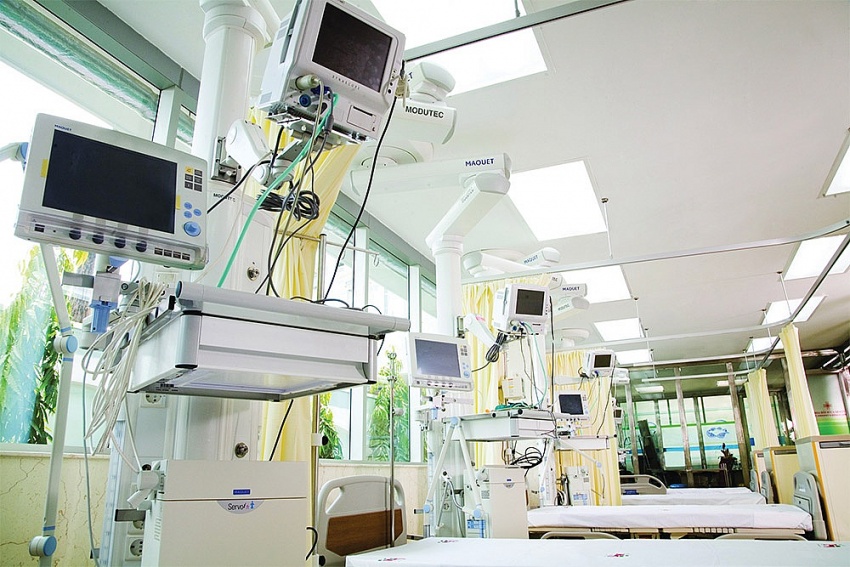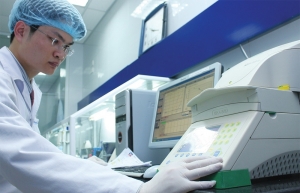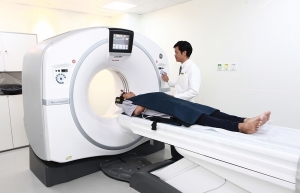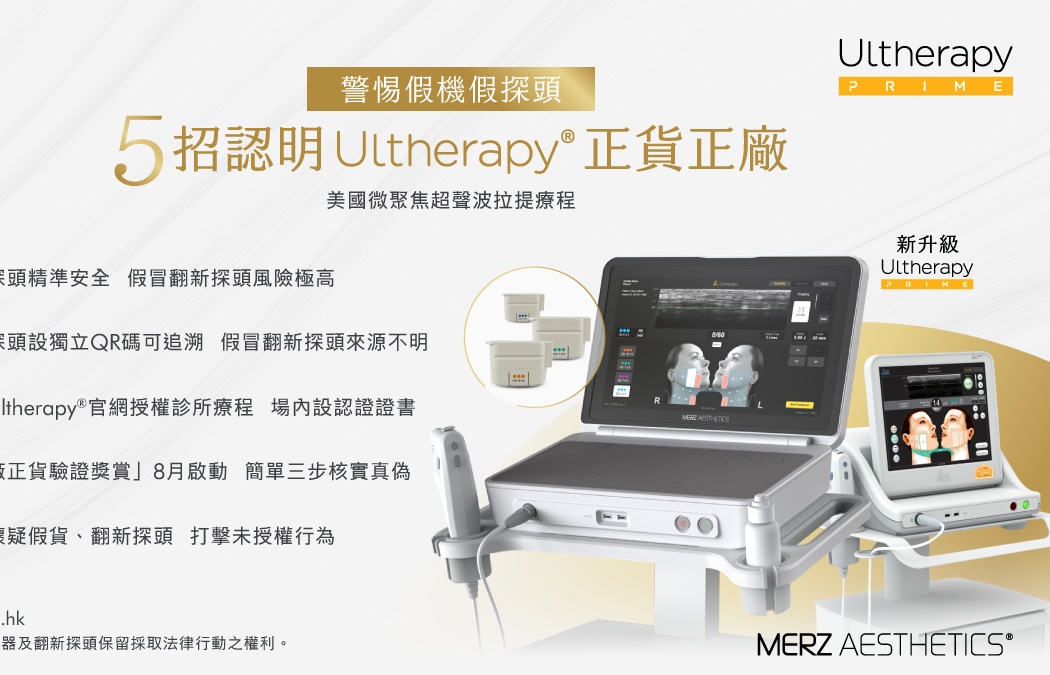INTERNATIONAL INVESTMENT
AND PORTAL
The business community, including those in healthcare, remains optimistic about negotiations on reciprocal trade between Vietnam and the United States after the Ministry of Industry and Trade announced on June 15 the conclusion of the latest negotiations, with progress made and gaps narrowed across all areas.
 Multinationals will forge partnerships to support medical advances, photo Le Toan
Multinationals will forge partnerships to support medical advances, photo Le Toan
Health expert Hoa Duong said that although the specific results have not been officially announced, this is encouraging news for medical device businesses.
“Vietnam still relies heavily on imported medical equipment, presenting opportunities for international manufacturers to capitalise on market demand through strategic distribution channels,” Duong said.
While the risks of US tariffs on Vietnam remain moderate, the country’s medical devices market is highly import-dependent, with only a small export market.
According to the Vietnam Customs, machinery, equipment, optical instruments, and medical measurement tools are among Vietnam’s key export items to the US. In 2024, Vietnam exported $1.58 billion worth of these products to the market.
Potential new US tariffs have raised concerns across many sectors in recent months. According to the European Chamber of Commerce’s Medical Devices and Diagnostics Sector Committee, while the final scope and implementation of such measures remain uncertain and any projections at this stage are speculative, it is worth using this moment to reflect on what matters most for healthcare systems and patients in Vietnam and across the Asia-Pacific region.
“Vietnam’s healthcare system continues to evolve rapidly. In the coming years, decisions made today about medical procurement and policy will have a lasting impact on patient outcomes, system efficiency, and innovation capacity,” a representative of the committee told VIR.
“If tariffs or other trade restrictions are introduced, the implications for global medical supply chains could be significant. Medical devices and diagnostic solutions are often complex products assembled from components sourced across multiple countries,” he added.
“Any disruption to this delicate balance risks delays in access, increased costs, and added strain on already overburdened healthcare systems – particularly in emerging markets like Vietnam,” he said.
Despite the concerns, signals of sustained interest among businesses and investors remain. Health expert Hai Ngo said that US tariffs are unavoidable and that multinationals need to act to mitigate possible negative impacts and continue growing their businesses.
“As Vietnam’s medical devices market is set to continue expanding despite ongoing risks, multinational companies will keep forging collaborations to support greater adoption of advanced medical technologies,” Ngo said.
For example, in June, a delegation from SpaceX, led by Andrew Matlock, director of enterprise sales, met with Vietnam’s Ministry of Health (MoH) in Hanoi to discuss future cooperation. The agenda included improving internet access in hospitals and clinics in remote areas, developing digital infrastructure for health examinations and remote treatment, enhancing work processes and operating systems, and participating in public investment.
In May, Sanofi-Aventis Vietnam expanded its presence by signing an MoU with the Vietnam Administration of Disease Prevention to collaborate on various initiatives over the next three years. The focus will include policy reviews and recommendations for national vaccination programmes, advancing lifelong vaccination initiatives via updated MoH guidelines, and implementing targeted public awareness campaigns about essential and next-generation vaccines.
Sanofi also signed a technology transfer agreement with Vietnam Vaccine JSC for domestic vaccine production.
Similarly, in April, Siemens Healthineers and Bayer Vietnam jointly introduced three AI-driven diagnostic imaging solutions in the country, designed to improve efficiency and sustainability in healthcare. The companies aim to set new standards in diagnostic imaging through advanced technology.
Meanwhile, the K-MED Expo 2025 will take place from July 10–12 in Hanoi, organised by the Korea Trade–Investment Promotion Agency and its partners. The event will bring together more than 150 leading businesses from South Korea, Southeast Asia, and other countries seeking opportunities in the Vietnamese market.
According to Fitch Solutions, Vietnam’s medical devices market is forecast to grow at a compound annual rate of 8.2 per cent in US dollar terms and 8.6 per cent in local currency, reaching $2.8 billion by 2029. The country’s economic growth and continuing public and private investment in healthcare will underpin this expansion.
 Expectations rise for medical devices
Expectations rise for medical devices
While supporting recent improvements in the process of granting marketing authorisations to medical devices, multinational corporations continue to seek for new positive changes to facilitate their plans.
 Law on horizon for life-saving equipment
Law on horizon for life-saving equipment
New legislation on medical devices is expected to help boost market development in Vietnam.
 Counterfeit medical devices pose serious patient safety risks
Counterfeit medical devices pose serious patient safety risks
A new warning highlights the hidden dangers of using unauthorized medical equipment.



















